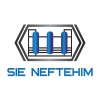-
Axens is a group providing a complete range of solutions for the conversion of oil and biomass to cleaner fuels, the production and purification of major petrochemical intermediates as well as all of natural gas' treatment and conversion options. The offer includes technologies, equipment, furnaces, modular units, catalysts, adsorbents and related services. Axens is ideally positioned to cover the entire value chain, from feasibility study to unit start-up and follow-up throughout ...
-
Advances in Ecofining™ technology
Refiners are facing a new world and new markets as the drive toward sustainability accelerates. Business is leading the change as major global corporations move to increase sustainability and lower greenhouse gas (GHG) emissions. The endgame is to produce low carbon, sustainable fuels while maximizing available resources and reducing waste. Honeywell UOP has shaped the refining process since it began. As a global leader in sustainable fuel technologies, UOP helped pioneer the ...
-
Axens is a group providing a complete range of solutions for the conversion of oil and biomass to cleaner fuels, the production and purification of major petrochemical intermediates as well as all of natural gas' treatment and conversion options. The offer includes technologies, equipment, furnaces, modular units, catalysts, adsorbents and related services. Axens is ideally positioned to cover the entire value chain, from feasibility study to unit start-up and follow-up ...
-
BioForming® Sugar to Aromatics ready now and fit for the future
The BioForming® S2A process turns sugars into a drop-in aromatic feedstock, BioFormate®. Like its reformate namesake, BioFormate® can be utilized to make a variety of end products such as bio-gasoline, drop-in sustainable aviation fuel (SAF), and bio-BTX (benzene, toluene and xylenes) - molecules used as building blocks for many everyday products, such as pharmaceuticals, polymers and coatings.
-
Co-Processing of alternative feeds
Vision of low carbon FCC of the future. To live in a more sustainable world, refiners are exploring ways to lower their carbon footprint. Sources of FCC Carbon emissions FCC - Scope 1 emissions from burning coke - Scope 2 emissions related to energy inputs (fairly small for FCC) - Scope 3 Upstream emissions for production and transport of feed - Scope 3 downstream for combustion of transportation fuels made from FCC.
-
Customized grading solutions for your feedstock
Match your catalyst grading to your feedstock for minimum pressure drop build-up and maximum demetallization. As today’s opportunity crudes and heavier feedstocks become more economically viable, the oil fractions you refine are posing new challenges. Creating the optimal grading solution for your individual feedstock is essential to minimize pressure drop build-up, increase metals pick-up, and reduce downtime and catalyst replacement. An overlooked advantage The importance ...
-
Governments and businesses are increasingly committed to steep decarbonization targets, establishing hydrogen as a key component in the energy transition. As of this writing, McKinsey reports that 64 countries, representing 89% of global CO2 emissions, have made net-zero pledges, while financial institutions and private sector enterprises also continue to increase their decarbonization aspirations. Going forward, the energy mix is projected to shift toward clean electricity, complemented ...
-
Johnson Matthey licensed processes
A portfolio of advanced process technologies for global markets. Johnson Matthey (JM) develops and licenses proprietary process technologies. We also offer collaborating companies an extensive range of technology development, process design and engineering skill. For over thirty years JM has been engaged in innovative DAVY™ licensing development. Our comprehensive expertise of catalysis and reaction engineering has been tailored to the production of a wide range of chemicals ...
-
New design improves FCC slurry pumparound
Rising global demand for transportation fuels and propylene as a chemical feedstock will require new and revamped FCC units to increase supply. Technology enhancements have historically focused on improved or new catalyst formulations, updated feed nozzles, and reactor/regenerator designs. FCC charge rate and reactor temperature are often limited by performance of the main column and bottoms system. To fully capture benefits associated with tailored catalyst formulation or ...
-
Biodiesel is a first-generation biofuel generated from vegetable oils, including soybeans, rapeseed (canola) and palm. With the ability to reduce lifecycle greenhouse gas (GHG) emissions by as much as 50% compared to fossilbased fuels, biodiesel fits well into the global ambition for clean fuels. Also known as FAME (fatty acid methyl ester), biodiesel is produced by the process of transesterification using biological feedstock, such as food crops, or latter-generation feedstock ...
-
Ethanol is the most mature among major renewable fuels and has the highest global consumption, with the US and Brazil being the top two consumers. Ethanol, when blended into gasoline, oxygenates the fuel and offers a proven solution for reducing transportation-related greenhouse gas (GHG) emissions. It is a clean, cost-effective way to improve the octane of gasoline or motor fuel, helping the engines to run more efficiently. As in the case of some other biofuels like FAME, high ...
-
PAC solutions for sustainable aviation fuel
The aviation industry is determined to develop sustainable solutions to produce cost-competitive, high-yield jet fuel with minimal environmental impact. Countries throughout North America, Europe, and Asia Pacific are currently at different stages in developing guidelines that will mandate the use of sustainable aviation fuel. Today, the global aviation industry produces about 2% of all human-induced CO2 emissions. Transitioning to sustainable aviation fuel could help reduce ...
-
SIE NEFTEHIM: aiming the challenges of the future
Based in the south Russia Krasnodar innovative chemical technology company - Scientific Industrial Enterprise (SIE) Neftehim LLC is one of Russia’s hundred most competent companies in its field. The company presents ISOPLAT, new efficient technology for the environmentally friendly high-octane gasoline components production with ultra-low aromatics and benzene. OILMARKET magazine met with the SIE NEFTEHIM President and CEO, Alexander Nikitovich Shakun. The development of ...
-
Advanced analytical measurement techniques for emerging feedstocks
Can sustainability and profitability go hand in hand? Join us for an insightful webinar that explores how advanced analytical measurement techniques can drive both growth and resilience in the petrochemical industry. With expertise in distillation, elemental analysis, and gas chromatography, PAC offers innovative solutions to optimize operations for players in plastic circularity. In this webinar, we will cover trends in the petrochemical market, including emerging feedstocks, ...
-
Breaking feedstock barriers with HTW® gasification technology
In the race to achieve net-zero emissions by 2050, industries are facing unprecedented challenges in meeting ambitious targets for sustainable fuels and chemicals. As sustainable feedstocks used today become scarce, the search for innovative solutions has never been more critical. Discover how GIDARA Energy's gasification process and efforts can efficiently convert a wide array of sustainable feedstocks – from forestry residues and municipal solid waste (MSW) to hard-to-recycle ...
-
Exploring chemical recycling and bio-based plastics production in refineries
How do we meet the growing demand for plastics? The global refining, gas, and petrochemical industries are under pressure to decarbonise and adopt sustainable practices while meeting increasing needs for plastics. This webinar will provide you with the following insights in addressing these challenges: - Explore advanced solutions such as chemical recycling, bio-based plastics, and mechanical recycling - See how Axens integrates recycling technologies into existing refineries - ...
-
Navigating Complexities of Renewables Processing
Refineries are shifting away from producing traditional fuels to remain relevant, compliant and profitable. Join us to learn more about recent developments in renewable feedstocks processing. In this webinar from Ketjen, you will gain an understanding of the regulations and drivers that shape the renewables market. You will also have a chance to learn about operational challenges you may face while processing feedstocks with various amounts and grades of HVO or waste plastic ...
-
Transforming hydrogen storage and transport
Join us for an insightful webinar where we delve into the hydrogen economy and discuss bankable and sustainable hydrogen transport projects that exist today. This session will focus on the commercialized and groundbreaking Liquid Organic Hydrogen Carriers (LOHC) technology that is revolutionizing the hydrogen economy. We will present an exciting case study demonstrating LOHC's differentiated benefits when transporting blue hydrogen produced in low cost regions and delivering that ...
-
The progress of SAF solutions for the decarbonisation of aviation
As the world increasingly commits to steeper decarbonization targets, the aviation industry is determined to develop sustainable solutions to produce cost-competitive, high-yield jet fuel with minimal environmental impact. The International Air Transport Association (IATA) estimates that the 2024 production volume of sustainable aviation fuels (SAF) will triple from 2023 levels – soaring to 1.5 million tonnes. This is in line with larger SAF production trends, as 2023 levels ...
-
Proven decarbonisation pathway for sustainable biofuels and chemicals production from waste
The flexibility to make use of varying waste streams as feedstocks to replace primary fossil resources is a common goal in operations today. You may be looking at sources such as woody and agricultural biomass, MSW, RDF, SRF, sewage sludge, or non-recyclable plastic to produce bio or circular chemicals or sustainable fuels: Bio Syngas, green hydrogen, SAF, sustainable maritime fuels, or BioMethanol. The key question is how to decarbonize these assets to meet sustainability and ...
-
Innovative solutions to shape the hydrogen economy
View this webinar for an insightful journey into the future of sustainable energy with Honeywell H₂ Solutions. In this exclusive webinar, we'll delve into cutting-edge innovations in hydrogen technology, focusing on Blue Hydrogen solutions and Liquid Organic Hydrogen Carriers (LOHC). Attending will offer these valuable benefits: - Discover how Honeywell is leading the way in transforming the energy industry through Blue Hydrogen, a game-changing process that reduces carbon ...
-
Maximizing renewable diesel and sustainable aviation fuel yields with ISOTERRA Technology
Investments in renewable diesel (RD) and sustainable aviation fuel (SAF) production are gaining considerable momentum and are expected to play a vital role in reducing carbon emissions for heavy-duty transportation. Currently, the majority of these projects focus on the production of HEFA (Hydroprocessed Esters and Fatty Acids). Chevron Lummus Global combines the renewable processing catalyst experience and technology of ART's ENDEAVOR™ catalyst system, CLG's hydroprocessing ...
-
Developments and solutions for renewable fuels testing
Regions and nations around the world are swiftly translating their climate targets into investments in renewable energy and fuel production. This necessitates a multifaceted approach and innovative solutions. Join us for this webinar as we report on the latest developments in the renewable fuels industry, with a particular focus on the transportation sector. We will discuss a range of renewable fuels, including SAF, ethanol, biodiesel, hydrogen, and their derivatives, while exploring ...
-
Low cost production of renewable diesel and SAF with BioFlux™ Hydrotreating Technology
Feed flexibility is critical for operators to stay competitive and deliver high-quality products. But diversifying your feed can bring its own set of challenges. It gets even trickier when working with renewable feedstocks from biological sources. These materials are highly olefinic and might be packed with heteroatom contaminants. To turn them into something valuable, you need substantially more hydrogen than you would for conventional petroleum hydrotreating. We're talking 1,700 ...
-
Economics of Decarbonisation with Honeywell Sustainability Portfolio and IRA
The Inflation Reduction Act (IRA), passed by the US government on August 16, 2022, provides nearly $370B in clean energy and climate funding over the next decade There has never been a better time to invest in a more sustainable future. Our upcoming webinar will provide valuable insights into key IRA provisions and enabling technologies to accelerate industrial decarbonisation and achieve your long-term financial and sustainability goals. This webinar will offer an incredible ...
-
Towards Your Low-Carbon Refinery
This On-Demand webcast from Shell Catalysts & Technologies, discusses proven technologies for capturing CO2 from both low and high-pressure streams. Are You… - Under pressure to reduce your carbon footprint? - Looking for ways to cost-effectively reduce your CO2 emissions? - Unsure which carbon-reduction solutions will be most appropriate for your facility? Any serious ambitions to reduce a facility’s carbon intensity are likely to be spearheaded ...





























